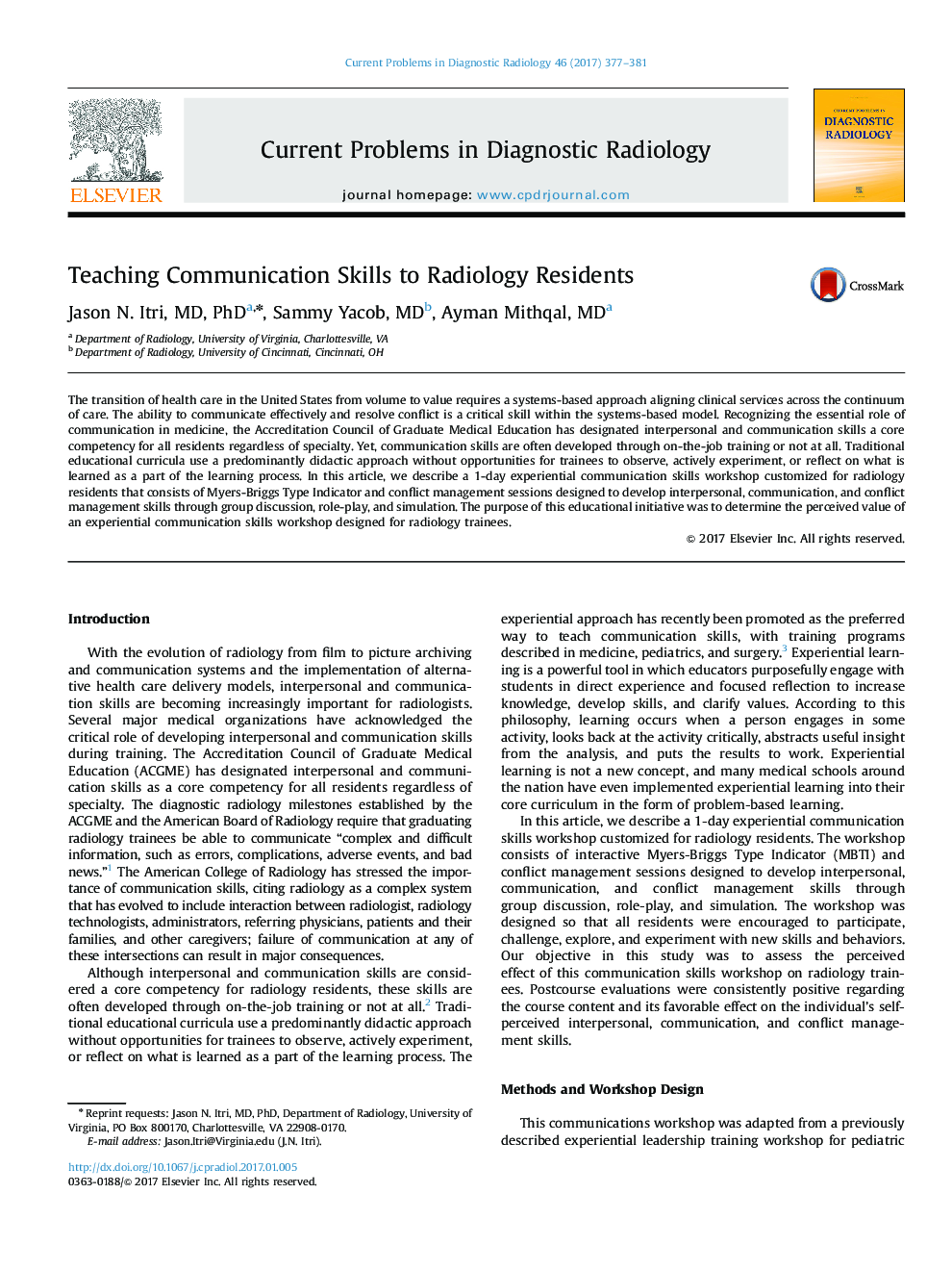| Article ID | Journal | Published Year | Pages | File Type |
|---|---|---|---|---|
| 5725913 | Current Problems in Diagnostic Radiology | 2017 | 5 Pages |
The transition of health care in the United States from volume to value requires a systems-based approach aligning clinical services across the continuum of care. The ability to communicate effectively and resolve conflict is a critical skill within the systems-based model. Recognizing the essential role of communication in medicine, the Accreditation Council of Graduate Medical Education has designated interpersonal and communication skills a core competency for all residents regardless of specialty. Yet, communication skills are often developed through on-the-job training or not at all. Traditional educational curricula use a predominantly didactic approach without opportunities for trainees to observe, actively experiment, or reflect on what is learned as a part of the learning process. In this article, we describe a 1-day experiential communication skills workshop customized for radiology residents that consists of Myers-Briggs Type Indicator and conflict management sessions designed to develop interpersonal, communication, and conflict management skills through group discussion, role-play, and simulation. The purpose of this educational initiative was to determine the perceived value of an experiential communication skills workshop designed for radiology trainees.
